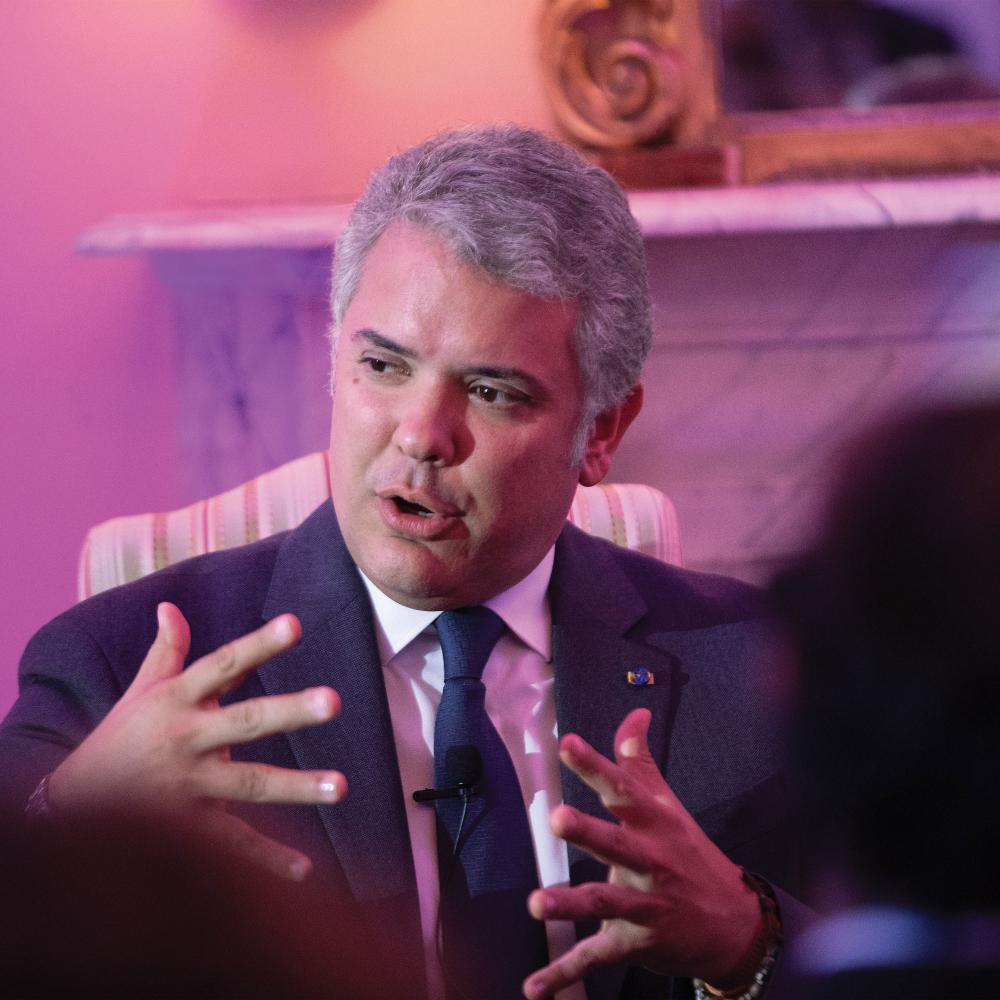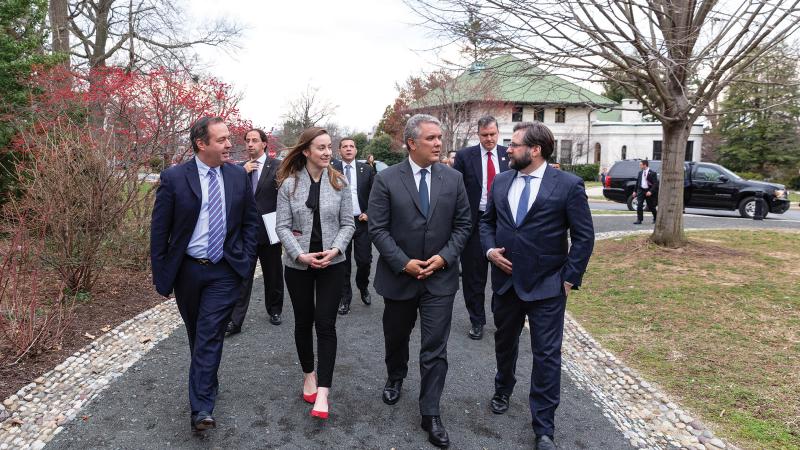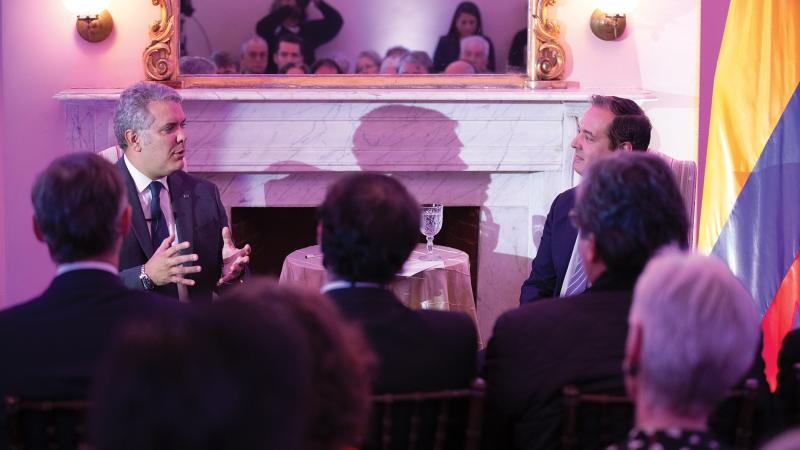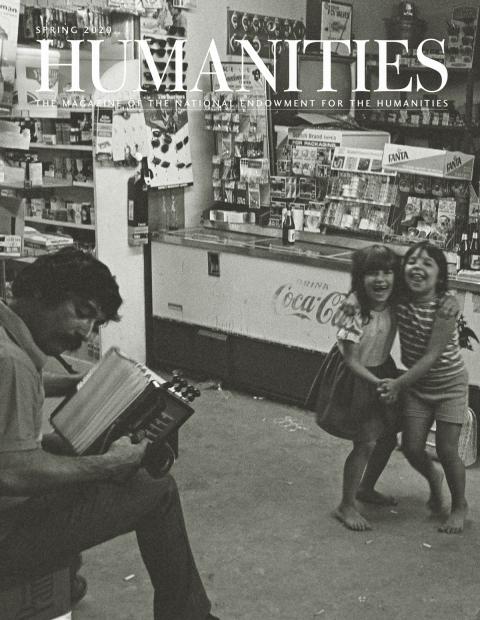On March 2, 2020, NEH hosted the president of Colombia, Iván Duque Márquez, at President Lincoln’s Cottage in Washington, D.C. It was the first time that NEH hosted a foreign head of state. Arriving straight from meetings with President Donald J. Trump at the White House, President Duque came to discuss with U.S. cultural leaders the importance of the creative economy.
NEH Chairman Jon Parrish Peede welcomed visitors to the historic site and discussed the agency’s work to prepare for the nation’s 250th anniversary in 2026. NEH Senior Deputy Chairman Carlos Díaz Rosillo then introduced and interviewed Duque, who is coauthor of The Orange Economy, published by the Inter-American Development Bank, where Duque worked for more than a decade. The book’s thesis is that creative industries—from music, dance, and theater to cuisine and cultural heritage tourism—form a sector not unlike the “green economy” of goods and services devoted to environmentally friendly production.
Why orange? In a wide-ranging, insightful conversation, President Duque told the capacity audience that he and his coauthor had both independently settled on orange as the right color for the creative industries. Afterward, they learned that in the healing art of reiki, which is very popular in South America, orange is associated with creativity. Duque also cited Frank Sinatra, who once said that of all the colors, orange is the happiest. Possibly the greatest contribution of this idea and coinage, Duque said, has been to help people who work in creative industries see themselves as part of a larger economic identity.
Given the event’s location, the legacy of President Lincoln was, not surprisingly, discussed, but few expected that President Duque would turn out to be such an admirer of our sixteenth president. Duque, who studied the humanities and law at Sergio Arboleda University in Bogotá and earned degrees in law and public administration at American and Georgetown universities, respectively, recalled reading Fred Kaplan’s Lincoln: The Biography of a Writer, an appropriate inspiration for a head of state who has authored several books.
President Lincoln’s Cottage is a sparsely furnished two-story house on the grounds of the Soldiers’ Home, which in Lincoln’s day was home to many veterans, with whom he readily spoke as he commuted back and forth from 1600 Pennsylvania Avenue. “A museum of ideas,” in the phrase of its docents, the handsomely programmed cottage is where it is believed that Lincoln drafted the Emancipation Proclamation.
The discussion, which included a fascinating exploration of various geopolitical matters, gave everyone an opportunity to learn about the importance of the creative industries as engines of economic growth as well as the ways in which cultural diplomacy can bring nations together.





